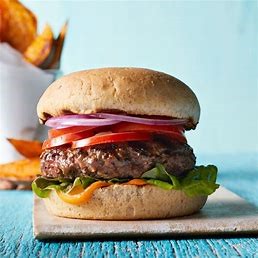Welcome to your MCI Wellbeing Blog for June!
This month we are talking about Exercise and Nutrition.
How active we are during the day, and the food that we eat can have a big impact on how we feel and our overall health. But how can we fit exercise and nutrition into our already busy lives? By making small changes and taking small steps.
Exercise 
The Australian Department of Health recommends adults get at least 30 minutes of moderate intensity activity 5 times a week. That means taking part in activities that require a bit of effort, but you can still have a conversation while doing them – like a brisk walk, dancing or even taking the stairs.
Being active makes you feel better – physically and mentally. It also reduces the risk of many health problems, such as heart disease, type 2 diabetes, anxiety, depression, unhealthy weight gain and even some cancers.
So, let’s look at the small changes we can make to our daily lives, to ensure that we are living a healthier, happier life.
Sit less, stand more
We sit while commuting, working, eating, and watching television. According to David Conroy at Penn State University, many of us spend eight of our waking hours with our butts in a chair.
The health risks of this kind of sedentary lifestyle—which include obesity, heart disease, and diabetes—are well known. However, sitting at a desk or in front of a computer is an unavoidable part of our day for many of us.
To sit less at work, make yourself step away from the desk and take active breaks during the workday. Use a small cup for water which will ensure that you have to move away and re-fill frequently throughout the day.
Never eat your lunch at your desk - take your lunch to the park. Not only are you getting fresh air but the walk to the park counts towards your 30 minutes of daily exercise. Win, win.
Try to get some fresh air three times a day for at least five minutes at a time. You’ll feel refreshed, more productive, and better equipped to make healthier choices.
5 minutes of exercise
You may be surprised to see how quickly small amounts of movement add up, without you even realising. By following the simple steps below, you can add an additional 30 minutes of physical activity to your day, without making big changes to your current schedule.
Quick activities to add to your day
- - Wake up 5 minutes earlier to do a mini (5 minute) workout.
- - Get off the bus a block earlier and walk an extra 5 minutes to work.
- - Take the stairs instead of the lift.
- - Add a 5 minute walk around the block during your lunch break (this will enhance your productivity and concentration span).
- - 5 minutes of movement as you prepare meals/wait for kettle to boil throughout the day.
- 5 minutes worth of active play with children/grandchildren. - - 5 minutes worth of activity throughout your favourite TV show.
Plan an activity with someone this week
Being active doesn’t have to be a chore. It is a great excuse to get out and catch up with friends and family. Plan ahead and arrange a walk after work, go for a swim at your local pool or explore a new part of your local area.
Nutrition
I know plenty of us think if we do plenty of exercise, we will stay slim and fit, and so we can eat whatever we want!
Sadly, this is not true. While exercise is fantastic for physical and mental health you need to combine this with good nutrition for optimum health and vitality.
Nutrition is a critical part of health and development. Better nutrition is related to improved infant, child and maternal health, stronger immune systems, safer pregnancy and childbirth, lower risk of non-communicable diseases (such as diabetes and cardiovascular disease), and longevity.
The benefits of eating well are huge: 
- - contributes to quality of life
- - helps maintain healthy body weight, reducing the risk of overweight and obesity
- - protects against infection
- - reduces the risk of disease and chronic conditions, like type 2 diabetes, heart disease, stroke and some forms of cancer
- - reduces the risk of premature death.
- Eating well can be delicious!
Some tips to make your diet healthy:
- Slow down
The pace at which you eat influences how much you eat, as well as how likely you are to gain weight.
In fact, studies comparing different eating speeds show that fast eaters are much more likely to eat more and have a higher body mass index (BMI) than slow eaters.
- Don’t shop without a list
There are two important strategies to employ when you go grocery shopping: Make your shopping list ahead of time and don’t go to the store hungry.
Not knowing exactly what you need makes room for impulse buying, while hunger can cause you to toss even more low nutrient foods into your shopping cart.
That’s why the best strategy is to plan ahead and write down what you need beforehand. By doing this and sticking to your list, you’ll not only buy healthier items to keep around the house, but you’ll also save money.
- Drink plenty of water

Many studies have shown that drinking water can increase weight loss and promote weight maintenance, and it may even slightly increase the number of calories you burn each day
Studies also show that drinking water before meals can reduce your appetite and food intake during the following meal
That said, the most important thing is to drink water instead of other beverages. This may drastically reduce your intake of sugar and calories
Drinking water regularly may also be linked to improved diet quality and could decrease your calorie intake from beverages
- Try at least one new healthy recipe per week
Deciding what to have for dinner can be a constant cause of frustration, which is why many people tend to use the same recipes again and again. Chances are you’ve been cooking the same recipes on autopilot for years.
Whether these are healthy or unhealthy recipes, trying something new can be a fun way to add more diversity to your diet.
Aim to try making a new healthy recipe at least once per week. This can change up your food and nutrient intakes and hopefully add some new and nutritious recipes to your routine.
Alternatively, try to make a healthier version of a favourite recipe by experimenting with new ingredients, herbs, and spices.
Last, but not least and our favourite tip
- It's okay to enjoy a treat here and there
Enjoying the occasional indulgent or junk food treat is appropriate when eaten in moderation. Although junk foods do get a bad rap, many of the negative side effects of junk food (like weight gain) are usually associated with eating these types of foods on a regular basis. If you just eat them occasionally or in moderation, you can still enjoy them without worrying about whether or not your weight or overall health will be affected. Learn to enjoy your favourite junk foods in moderation and keep them in check so you can maintain a healthy lifestyle.
Need assistance as a student at MCI?
Do you require assistance with your studies at MCI? Do you need a role play partner? Be reminded, to please reach out to your mentor. Finally, you always have the option and are encouraged to interact with other students by joining the MCI Student Facebook page.
If you would like to talk to a MCI Wellbeing officer, please click below:
All the best!
.png?width=113&name=MCIinstitute_RGB_Color_Black-01%20(2).png)





